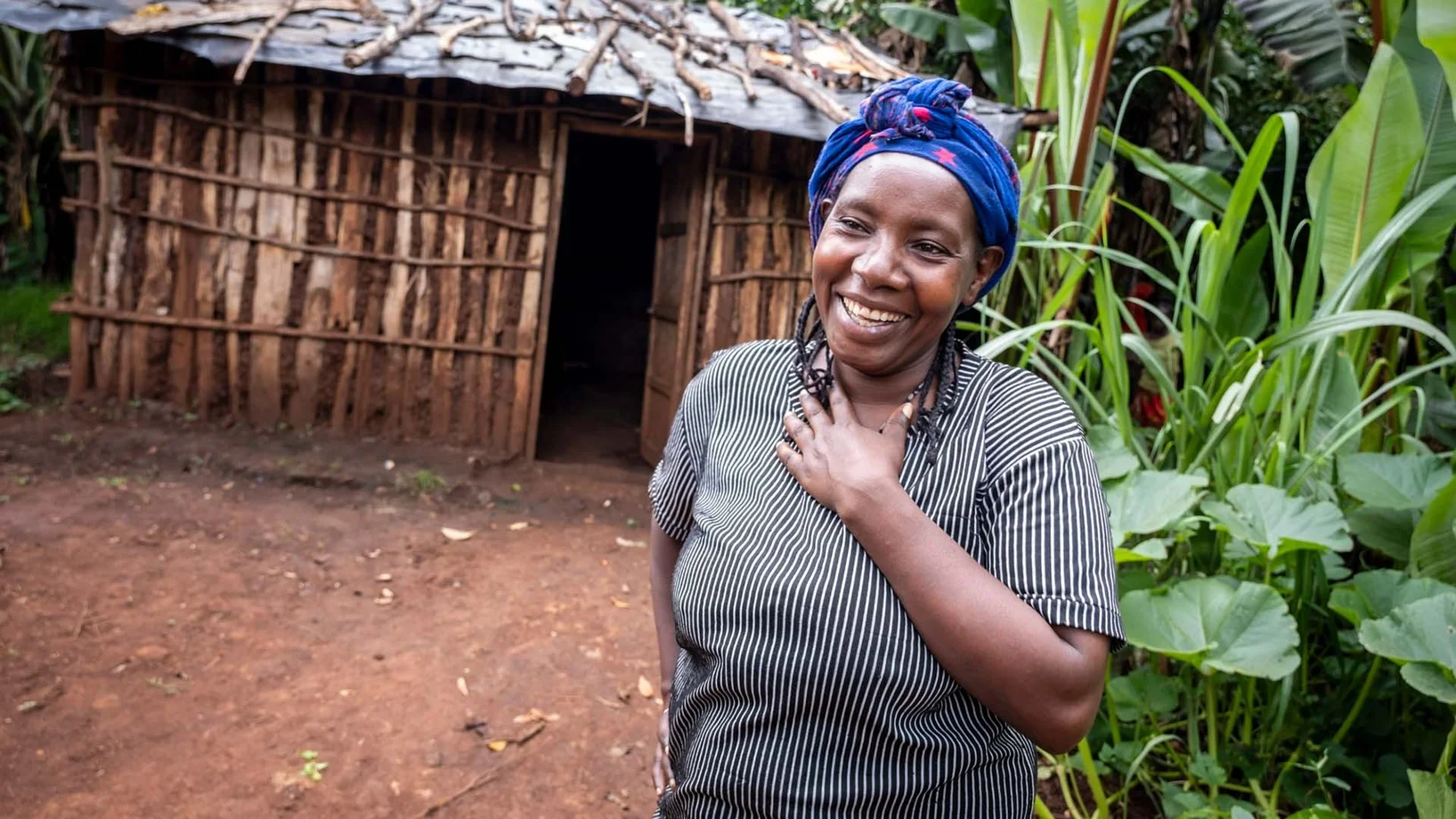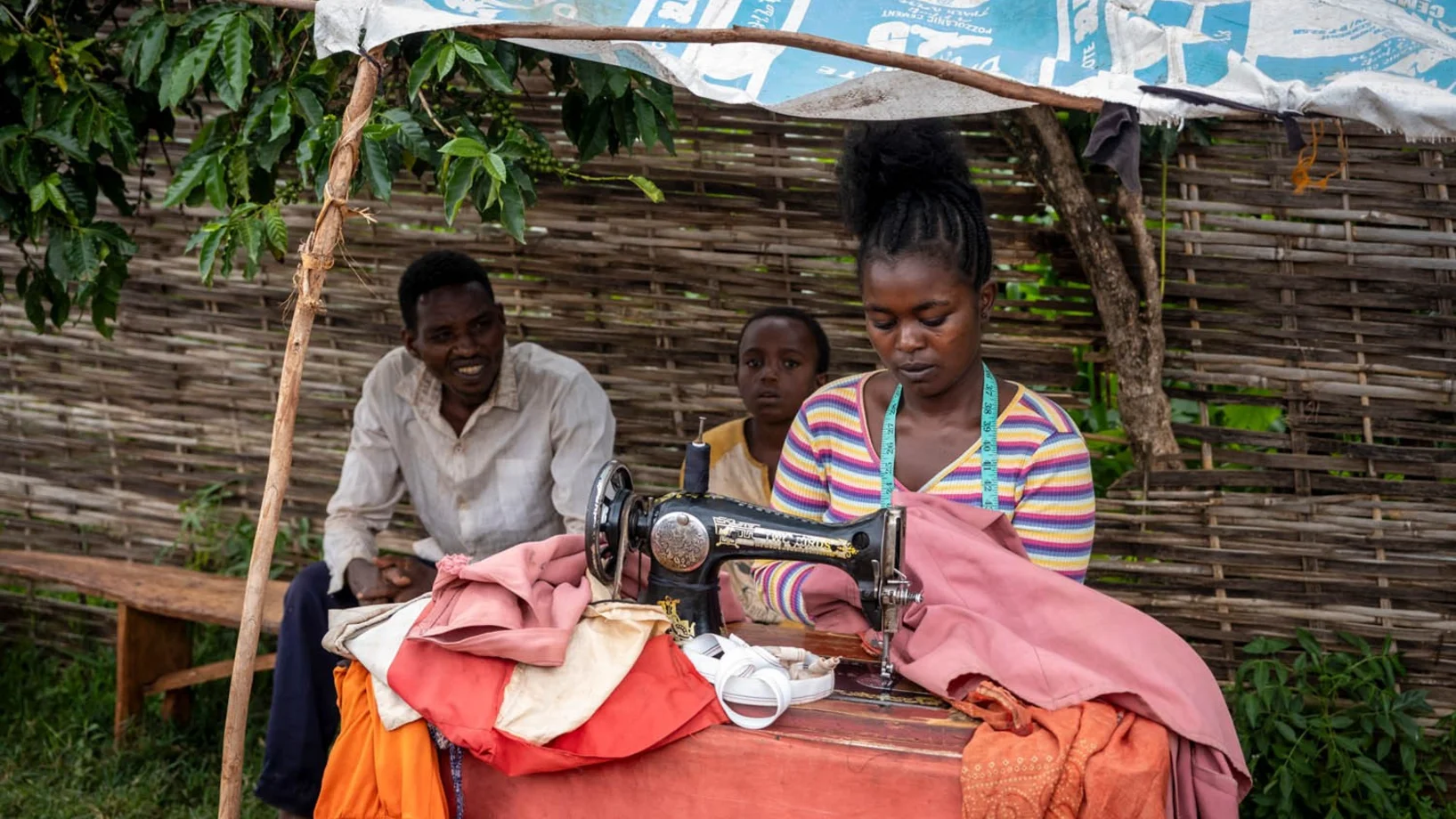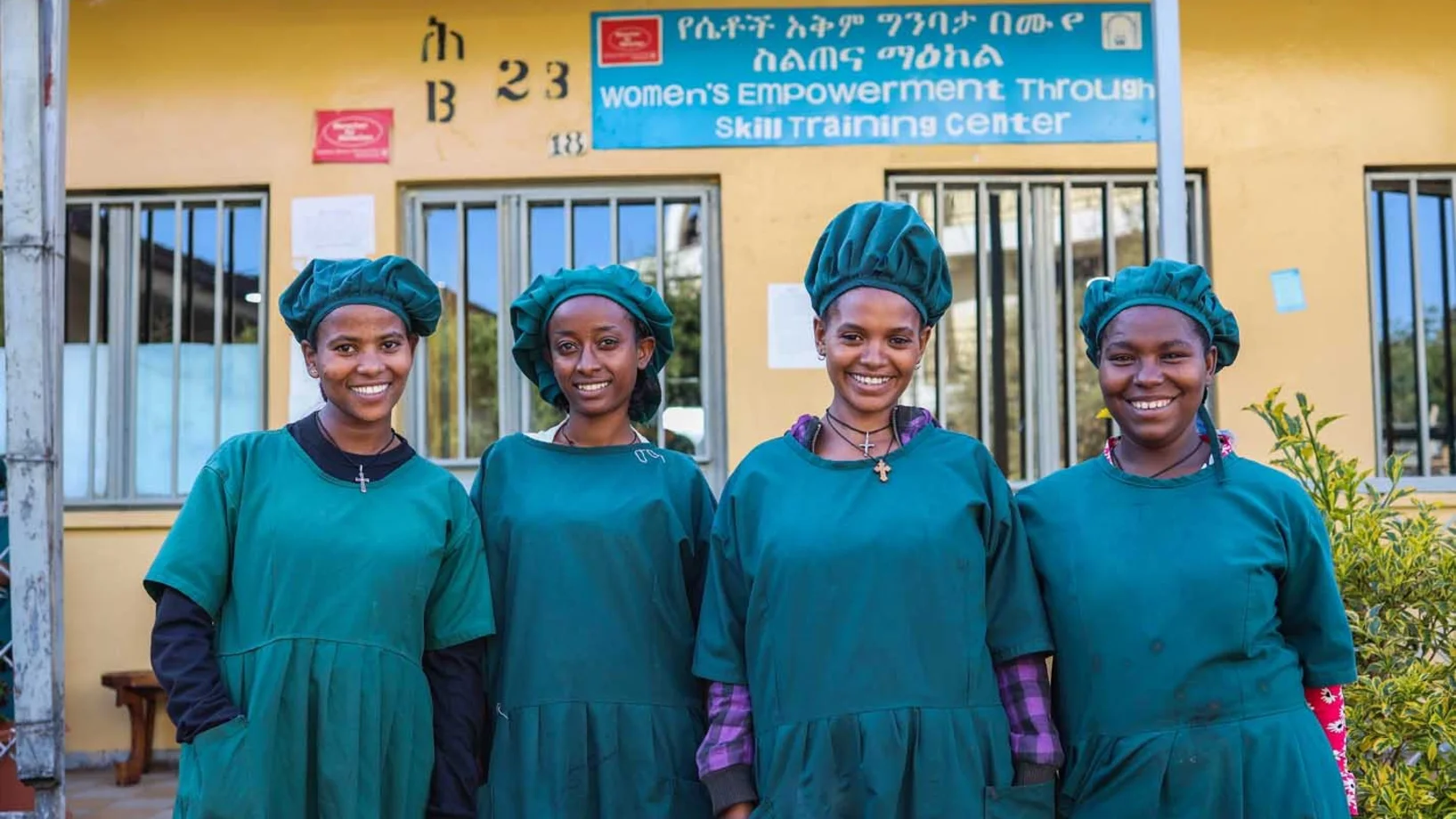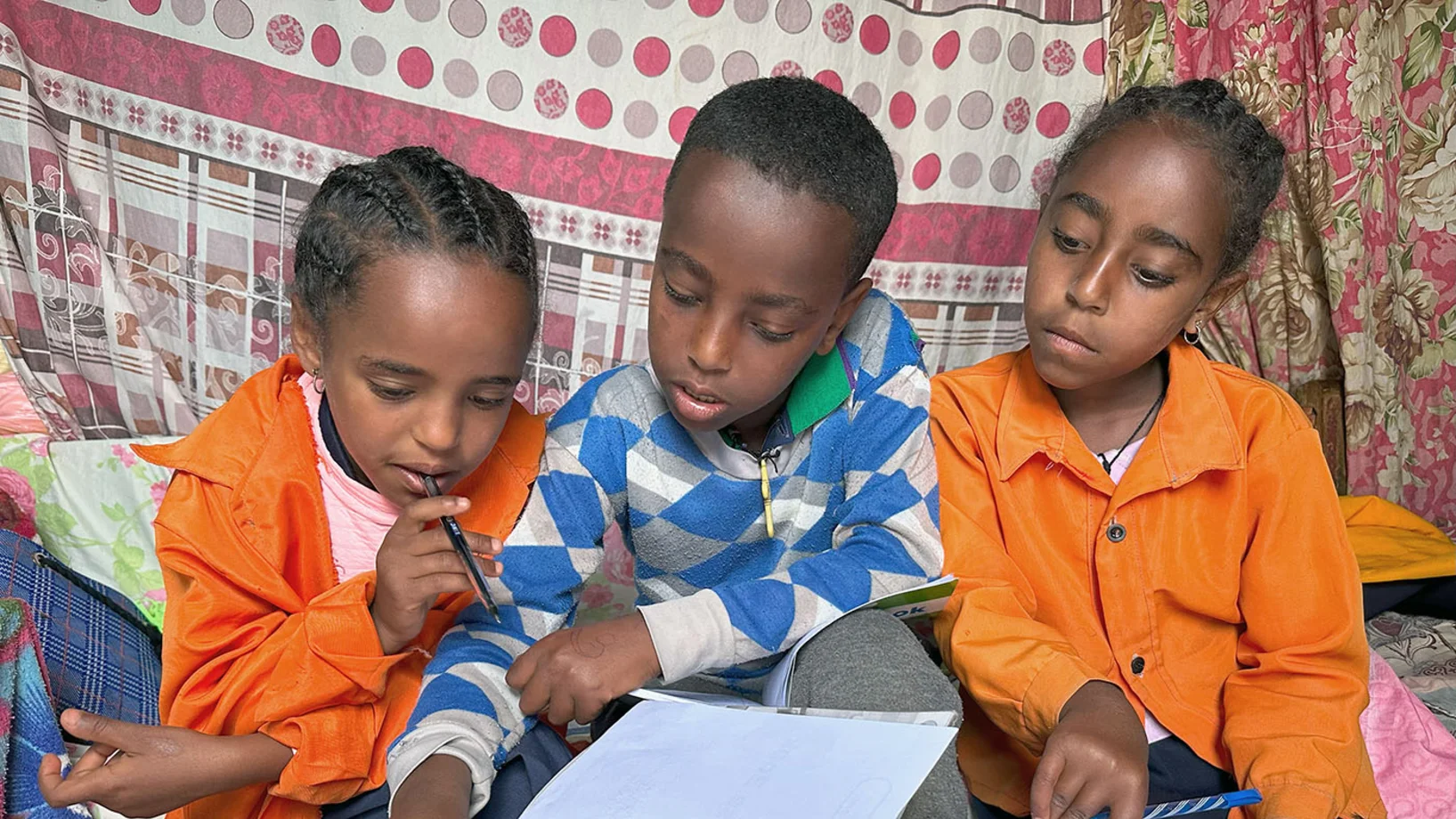No development without equality
In Ethiopia, women suffer from harmful traditions. Many girls are forced into early marriages. This is one of the reasons for the high maternal mortality rate: the bodies of 15-year-olds are often not yet ready for pregnancy. The government has banned marriages under the age of 18 and improved maternity care. But many women still die in childbirth.
Overall, self-determination for girls and women is improving. While in the mid-1990s only three percent of Ethiopian women practiced family planning, today around 40 percent use contraceptives. During the same period, the number of children per woman fell from seven to four. In the past, parents sent their sons to school and their daughters stayed at home. But now this difference has leveled out: around eight out of ten young people between 15 and 24 can read and write - both boys and girls.
Menschen für Menschen is continuing to push this trend towards greater equality. We improve the position of women with self-help groups and microcredits. We initiate “Girls Clubs” in schools that combat discrimination. We train volunteers to educate people about equality in the villages.







